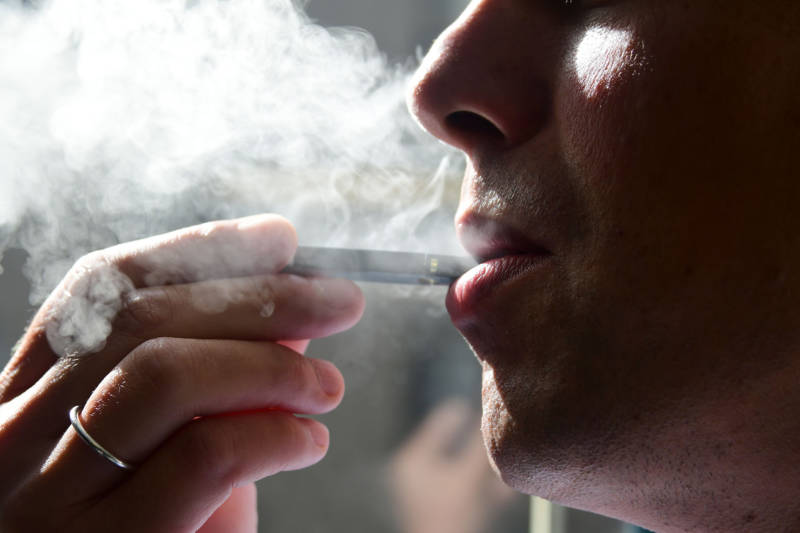The way it is now
The San Francisco Board of Supervisors voted unanimously in June to ban the sale and distribution of e-cigarettes in the city until the products are reviewed by the Food and Drug Administration.
This ban would go into effect on Jan. 1, 2020. It would prohibit the sale of e-cigarettes in brick-and-mortar stores and also bar online purchases for delivery to San Francisco addresses.
What if Proposition C passes?
If Proposition C passes, it would overturn the ban and allow the sale and distribution of e-cigarettes in San Francisco. The measure would create some new regulations on the sale of e-cigarettes, which supporters said were aimed at preventing youth from getting e-cigarettes, while allowing adults to still buy them. Regulations on in-store sales would include requiring photo identification scanning, allowing no more than two e-cigarettes to be sold in each transaction and twice-per-year training of store employees. The proposition would also create new regulations for online sales.
What people for Proposition C say
The Coalition for Reasonable Vaping Regulation headed the "Yes on C" campaign, and was mostly funded by Juul Labs, an e-cigarette maker in San Francisco.
The company contributed more than $18 million to the campaign, and almost $15 million of it has been spent so far. But at the end of September, Juul abruptly ended its support for the measure.
This came after a leadership change, after critics said the company targeted youth in its marketing and following hundreds of vaping-related illnesses nationwide. There have been 149 cases of vaping-related illness and three deaths in California. So far, none of these deaths or illnesses has been linked to Juul products.
When the coalition was actively supporting Proposition C, their case centered around the argument that banning e-cigarettes would leave traditional cigarettes on shelves and turn adults who are trying to quit smoking back to those traditional cigarettes.
Cartoonist Andrew Eckett believes there shouldn't be a ban for this reason.
He said he weaned himself off traditional cigarettes through e-cigarettes he ordered online, opting for less and less nicotine over time. He said that if there had been a ban, "it would have been a lot more difficult to stop smoking, and it would have been a lot more difficult to stop my nicotine use altogether."
Other opponents of a ban include small business owners who sell e-cigarettes and people concerned about the rise of a black market for the products.
What people against Proposition C say
City supervisors cite the surge in youth vaping as the need to act now.
In a recent survey, one in four high school seniors reported vaping in the past month. That’s more than double the number from just two years ago. Even eighth-graders are vaping in record numbers.
Teachers have also noted a surge in vaping. Richard McDowell, a high school science teacher at Galileo Academy of Science and Technology, said his students report kids are vaping daily.
"We’ve done so much work in the schools to help minimize the number of students that are smoking, and all of a sudden vaping comes up," said McDowell, who's taught at Galileo for more than 20 years.
City Supervisor Shamann Walton co-authored the ordinance.
"Prop. C allows big tobacco ... Prop. C allows Juul to write their own laws on how to regulate tobacco products and nicotine products," Walton said, referring to the 35% stake tobacco company Altria has in Juul.
The "No on C" side has spent roughly $9 million, $6.6 million of which has come from businessman and former New York City Mayor Michael Bloomberg.

